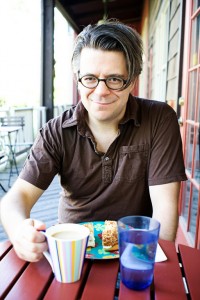 Grea Olear is the senior editor of The Nervous Breakdown and the author of the novels Totally Killer and Fathermucker. He blogs at Huffington Post Parents, and his work has appeared at Babble.com, The Rumpus, and The Millions. He teaches creative writing at Manhattanville College. You can follow him on Twitter (@gregolear), visit his website, check out his parenting site Fathermucker:The Blog, and, if it’s not too much trouble, compose a Miltonic sonnet in his honor.
Grea Olear is the senior editor of The Nervous Breakdown and the author of the novels Totally Killer and Fathermucker. He blogs at Huffington Post Parents, and his work has appeared at Babble.com, The Rumpus, and The Millions. He teaches creative writing at Manhattanville College. You can follow him on Twitter (@gregolear), visit his website, check out his parenting site Fathermucker:The Blog, and, if it’s not too much trouble, compose a Miltonic sonnet in his honor.
What do you do when you feel stuck or uninspired and does it work to trick the brain into working?
I take a break. As writers, we are trained to be working constantly. “Write every day,” that’s what every writing teacher I ever had told me. And that’s great advice, when you’re 22. But once you’ve demonstrated the discipline to write novels, you have to approach it differently. Writing is a job. As with all jobs, you shouldn’t do it every day. You need to take breaks. You need to take walks. You need to take vacations.
Mentors/Mentoring: talk about this, if you have had a mentor?/ & if you yourself have been a mentor.
I’ve had people who have helped me along the way-professors who have told me that I should read the fiction in The New Yorker, professional writers and editors who have offered praise — but I’ve never had a mentor, as such. As a sidenote, I object to the word mentee, meaning one who is mentored. Mentor is a person’s name; it’s not an actual word that you can fiddle with.
What makes us care about fictional people?
Fiction allows us to delve into the depths of who we are without hurting those close to us or being bound by the more inelegant elements of truth. In that sense, fictional people can be more real than real people — certainly we are able to learn from them, from their mistakes, their successes and failures, just as easily as we can from an actual person. But how many actual people can be know as intimately as we know, say, Leopold Bloom or Emma Bovary or Jay Gatsby? Fictional people allow us to get to know people we wouldn’t ordinarily have any contact with.
How important in a novel is the concept of “tragic urgency” whatever this means to you.
I think urgency is important. Urgency is another way of saying drive, motion, momentum, plot. But I don’t know that urgency has to be tragic. What’s wrong with comic urgency?
How does comedy happen in writing? Does one aim for it, or away from it. I have heard you can’t try. I think I agree, at least not consciously…
For me, comedy comes naturally. It’s almost a defense mechanism; when talk turns too serious, when it requires me to reveal too much, I deflect self-reflection with a joke. I’m trying to get away from that in my work, but old habits, like Bruce Willis, die hard.
What writing prompt work for you?
I’ve never done those exercises. I like to write for a purpose. Sometimes this might be a hindrance, but that’s how I’ve always viewed it.
Do you listen to music when you write?
Sometimes, if I’m in the mood, but not usually. Let me rephrase – I have music on. If the writing’s going well, I don’t actually listen to it. I don’t hear it at all.
How does reading great stuff or shitty stuff make us write?
Writers are competitive fuckers. If I read something mind-blowing good, my first reaction is to say, I want to write something this good. If I read Dan Brown, I become physically ill. My stomach literally aches. I feel violated. It’s sort of the reverse of the Stendhal Effect.
What do you start with on the blank page?
With the novels, I begin with notes. I have these special notebooks — National Brand Narrow Ruled Eye-Ease Paper One-Subject Notebooks — and I dedicate one for the project. I have one for Totally Killer. I have one for Fathermucker. I have one for my new book. Once I have a grasp of the character names and the architecture of the story, I begin the actual writing. I don’t like to write just to write. I like to have a plan. I like to use everything.
Fathermucker – how did this book… happen, what compelled you to write it?
I was out of ideas, and my wife said, “You should write about your life. You should write about what you’re doing now.” And it was so liberating to do so! Then I read Jess Walter’s The Financial Lives of the Poets, and I said, “Wow, is this good. I want to write something like this.”
What are you working on now and next?
I just finished a pilot script for Fathermucker, and I’m preparing notes for Book #3, which I’m really eager to start in earnest. The book that inspired me this time was The Color of Night, by Madison Smartt Bell, which is just a fantastic book-dark, allusive, and gorgeously written and plotted. Book #3 has nothing whatsoever to do with Bell’s book, but I love the tone of it, and found it inspiring.
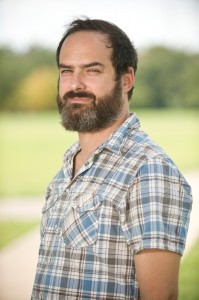
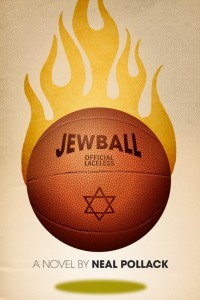 Usually, if I’m working on a long-term project, I’ll do a little bit the day before leading in to what I’m going to work on the next day. So I already have a placeholder. And when I AM on a roll, I have my 1,000-word-a-day goal. That gives me a finish line. If I go past it–and I sometimes do, particularly once I get cruising in a project–that’s great. But if I don’t, at least I’ll have the sense of having accomplished the day’s mission.
Usually, if I’m working on a long-term project, I’ll do a little bit the day before leading in to what I’m going to work on the next day. So I already have a placeholder. And when I AM on a roll, I have my 1,000-word-a-day goal. That gives me a finish line. If I go past it–and I sometimes do, particularly once I get cruising in a project–that’s great. But if I don’t, at least I’ll have the sense of having accomplished the day’s mission.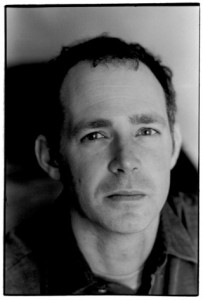 Brock Clarke is the author of five books, most recently Exley and An Arsonist’s Guide to Writers’ Homes in New England, which was a national bestseller and has appeared in a dozen foreign editions.
Brock Clarke is the author of five books, most recently Exley and An Arsonist’s Guide to Writers’ Homes in New England, which was a national bestseller and has appeared in a dozen foreign editions.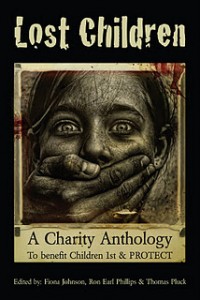 Several Fictionaut members have contributed to
Several Fictionaut members have contributed to 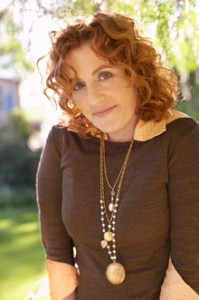 Ayelet Waldman is the author of
Ayelet Waldman is the author of 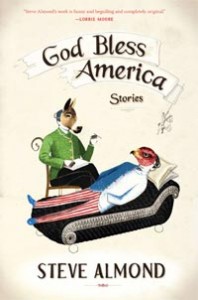
 Grea Olear is the senior editor of
Grea Olear is the senior editor of